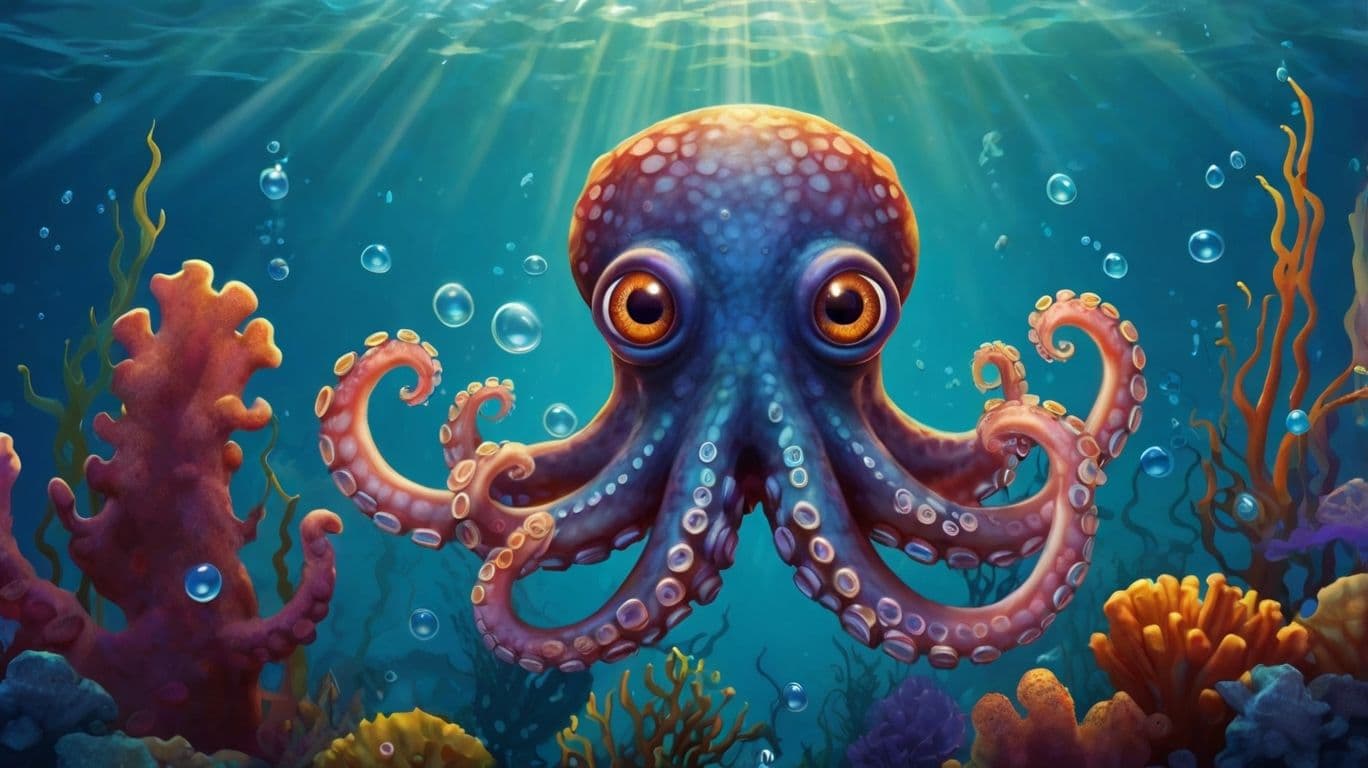Wait, what?
Yes — it’s one of nature’s wildest design choices. The octopus, that squishy master of camouflage and underwater escape, has three hearts. And get this: two of them actually stop beating when it swims.
Let’s unpack that weirdness together.
🐙 Why Three Hearts?
Most of us walk around with just one hardworking heart. But the octopus? It’s built like a backup generator system.
Here’s the breakdown:
- Two branchial hearts: These pump blood through the gills to pick up oxygen.
- One systemic heart: This pumps that oxygen-rich blood to the rest of the body.
Together, these three hearts keep the octopus alive in the cold, high-pressure environments of the deep sea.
But here’s the twist…
💔 When They Swim, They Sacrifice Their Heart(s)
When an octopus starts swimming — not just crawling or gliding, but actively jet-propelling through the water — its systemic heart stops beating.
Yes, you read that right. Its main heart takes a break during swimming. So while it’s fleeing danger or darting between coral reefs, its body isn’t receiving oxygen-rich blood. That’s a huge deal. Imagine trying to sprint while your heart just… pauses.
This is part of why octopuses prefer crawling over swimming. Swimming is tiring — not just because it’s a workout, but because they’re literally starving their own tissues of oxygen as they do it.
🔬 But Wait, There’s More Strange Biology
Octopuses are biological rule-breakers in other ways, too:
- They have blue blood, thanks to a copper-based molecule called hemocyanin (instead of our iron-based hemoglobin).
- They can regrow limbs and change both their skin color and texture in milliseconds.
- Their brains are decentralized — two-thirds of their neurons are in their arms. Each arm can taste, feel, and react almost independently of the brain.
Basically, they’re closer to aliens than any Earth creature has the right to be.
📜 A Little History: The Myth and Mystery of the Octopus
For centuries, octopuses were considered monsters. Early sailors told tales of the Kraken, a legendary sea beast that could pull ships under with its massive tentacles. Those myths likely came from sightings of giant squids and octopuses — animals no one could explain at the time.
It wasn’t until modern science caught up that we began to see them not as monsters, but mysterious geniuses of the deep.
In fact, octopuses are so smart that some scientists hesitate to even call them “animals” in the way we think of them. They can:
- Open jars from the inside
- Use tools
- Solve mazes
- Escape from aquariums
- Even recognize individual people
No wonder they need extra hearts — they’ve got a lot going on.
💡 So What Does This Mean?
This one fact — “octopuses have three hearts” — unpacks a whole universe of oddities:
- They don’t move like us
- They don’t breathe like us
- They don’t even think like us
- And somehow, they still outsmart us in a lab tank
It reminds us that life comes in wildly different forms, each one shaped by millions of years of evolution in ways we’re only beginning to understand.
🧭 Takeaway
Next time you feel overwhelmed, remember: somewhere in the ocean, there’s a creature juggling three hearts, blue blood, eight arms, and zero bones — and it still manages to open jars faster than you.
The world is weird, and that’s wonderful.



